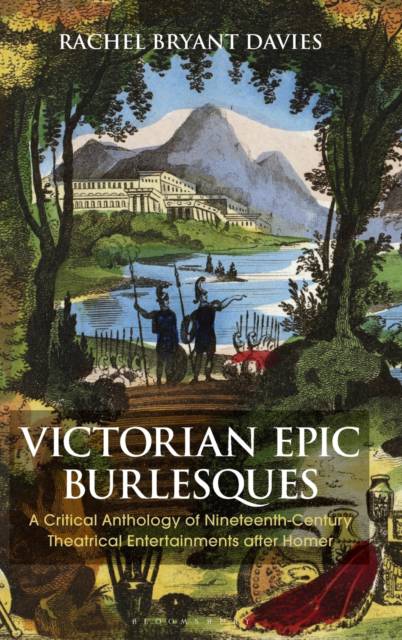
- Afhalen na 1 uur in een winkel met voorraad
- Gratis thuislevering in België vanaf € 30
- Ruim aanbod met 7 miljoen producten
- Afhalen na 1 uur in een winkel met voorraad
- Gratis thuislevering in België vanaf € 30
- Ruim aanbod met 7 miljoen producten
Zoeken
Victorian Epic Burlesques
A Critical Anthology of Nineteenth-Century Theatrical Entertainments After Homer
Rachel Bryant Davies
€ 296,95
+ 593 punten
Uitvoering
Omschrijving
This anthology presents annotated scripts of four major burlesques by key playwrights: Melodrama Mad! or, the Siege of Troy by Thomas John Dibdin (1819); Telemachus; or, the Island of Calypso by J.R. Planché (1834); The Iliad; or, the Siege of Troy by Robert Brough (1858) and Ulysses; or the Ironclad Warriors and the Little Tug of War by F.C. Burnand (1865).
Beloved legend, archaeological riddle and educational staple: Homer's epic tales of the Trojan War and its aftermath were vividly reimagined in nineteenth-century Britain. Classical burlesques-exceptionally successful theatrical entertainments-continually mined the Iliad and Odyssey to lucrative comic effect. Burlesques combined song, dance and slapstick comedy with an eclectic kaleidoscope of topical allusions. From namedropping boxing legends to recasting Shakespearean combats, epic adaptations overflow with satirical commentary on politics, cultural highlights and everyday current affairs. In uncovering Homer's irreverently playful afterlife, this selection showcases burlesque's development and wide appeal. The critical introduction analyses how these plays contested the accessibility of classical antiquity and dramatic performance. Textual and literary annotations, with contemporary illustrations, illuminate the juxtaposed sources to establish these repackaged epics as indispensable tools for unlocking nineteenth-century social, cultural and political history. Resources for further study are available online.Specificaties
Betrokkenen
- Auteur(s):
- Uitgeverij:
Inhoud
- Aantal bladzijden:
- 296
- Taal:
- Engels
- Reeks:
Eigenschappen
- Productcode (EAN):
- 9781350027176
- Verschijningsdatum:
- 4/10/2018
- Uitvoering:
- Hardcover
- Formaat:
- Genaaid
- Afmetingen:
- 160 mm x 236 mm
- Gewicht:
- 521 g

Alleen bij Standaard Boekhandel
+ 593 punten op je klantenkaart van Standaard Boekhandel
Beoordelingen
We publiceren alleen reviews die voldoen aan de voorwaarden voor reviews. Bekijk onze voorwaarden voor reviews.








